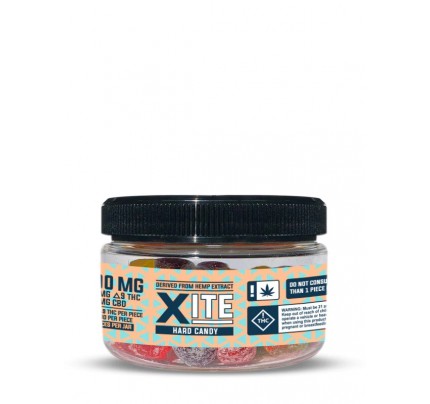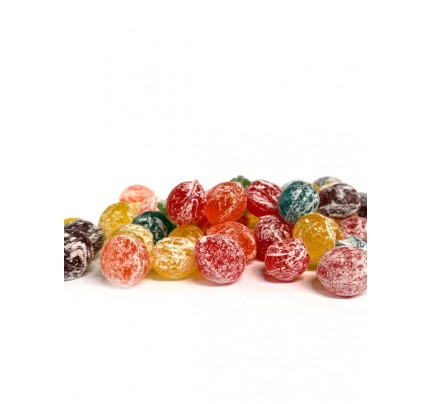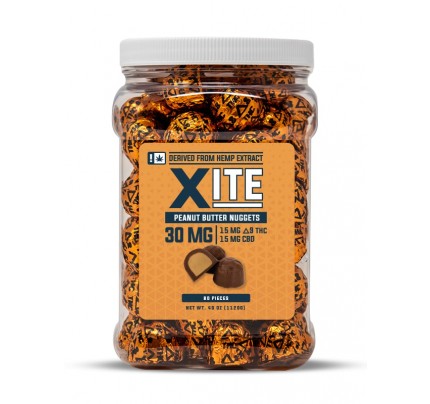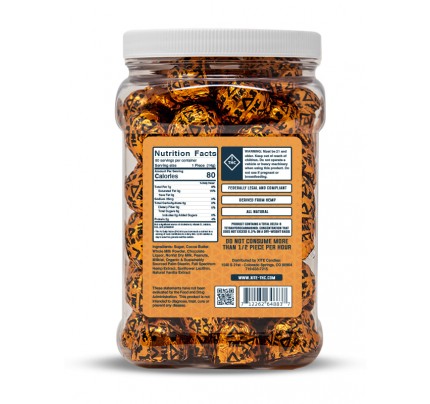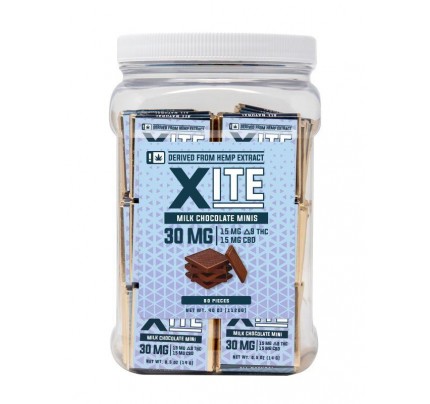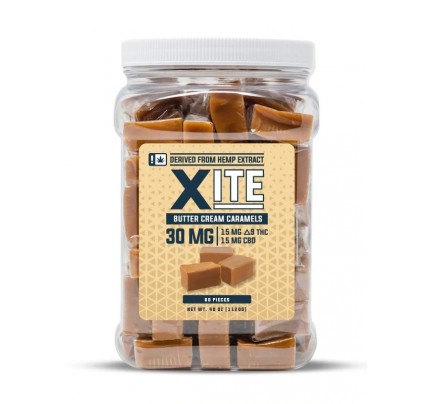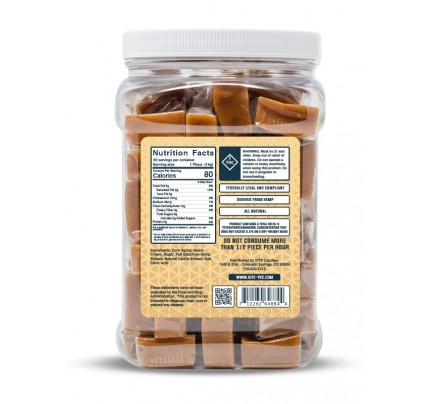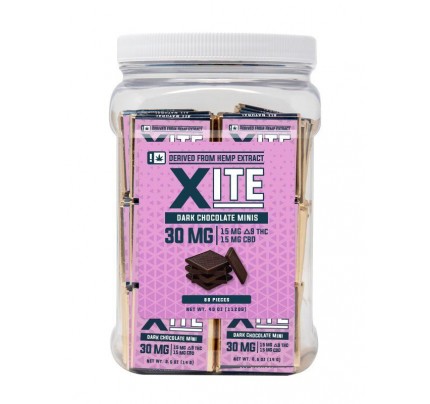Product Description
TRE HOUSE DELTA 10 GUMMIES + HHC + DELTA 9
If you want to get lifted, but want to try something a little different from your traditional THC experience, these gummies offer a delicious, discreet way for you to get ripped just about anywhere! Packed with a unique blend of 10mg of Delta-10, 5mg of HHC, and 5mg of Delta-9 for a perfectly balanced buzz. These Tre House Gummies will get you way lifted and in a relaxed moon and taste amazing with a real fruit flavor to bring you a blue raspberry crafted combination taste. If you’re looking for a discreet, enjoyable way to get ripped, you will enjoy these Cannabis gummies.
D10 + D9 + HCC Cannabis Candies Details:
- 10mg Delta-10 per serving
- 5mg HHC per serving
- 5mg Delta-9 per serving
- 400mg Total
- 20 Gummies per jar
- Mouthwatering sweet Blueberries and tangy Raspberries
- Lab Tested
- Can get you super lifted
- Vegan & gluten-free
Benefits:
- Relaxation
- Mood Elevation
- Body Buzz
- Head Buzz
- Mildly Trippy
About Delta-9 THC:
Delta-9-Tetrahydrocannabinol is intoxicating and psychoactive cannabinoid found in the cannabis plant, it is the most well-known cannabinoid and is capable of inducing a variety of sensory and psychological effects, including euphoria, mild reverie, increased sensory awareness, and some therapeutic benefits. Cannabis has been historically cultivated for its euphoric and therapeutic effects, which are largely attributed to the THC molecule.
THC stands for Delta-9-Tetrahydrocannabinol or ?-9-tetrahydrocannabinol (?-9-THC), the main psychoactive ingredient in cannabis and is the most well-known cannabinoid of the Marijuana Cannabis Plant, responsible for the cannabis high. THC works in the mine and body through our endocannabinoid system (ECS), a system of cannabinoid receptors, lipids, and enzymes that plays a discernible role in maintaining internal regulatory balance, when our bodies achieve this balance, it's called homeostasis. The ECS (Endocannabinoid System)is present throughout the body, consisting of three main components: Messenger molecules(endocannabinoids), that our bodies produce; the receptors these molecules bind to; and the enzymes that break them down. The ECS has several receptors, but the main players are receptors CB1 and CB2. CB1 receptors, found mainly in our central nervous system, activate when THC binds to them, which in turn causes THC intoxication and other cerebral effects.
THC is just one of more than 400 different active substances and 60 different cannabinoid molecules that is contained in marijuana, although THC is the most recognized. Another important cannabinoid molecule that has received major interest is cannabidiol (CBD). At the molecular level CBD is the inverse agonist (binds to the receptor) to THC's agonist, inducing the opposite cellular response as THC. In recent years, CBD (cannabidiol) has received more attention for its therapeutic potential, but THC is arguably still the most famous and certainly the most infamous cannabinoid. THC is not solely responsible for the psychoactive effects of cannabis, it is the primary psychoactive component. Cannabidiol (CBD), the other most well-known marijuana compound, binds to both CB1 and CB2 receptors. It doesn't intoxicate like THC.
THC may be the central progenitor of recreational cannabis effects, but that doesn't mean it isn't also used for medical uses and its pain-relieving and anti-inflammatory effects. Whether alone or as part of a whole cannabis product, THC is far from lacking in medicinal value. More than 10,000 studies in humans demonstrates that cannabis is safe and effective for the relief of chronic pain in adults. Pain from tissue damage and inflammation and damage to the nervous system are treatable with THC (cannabis). Profound pain relief is more likely to happen if THC can get into the bloodstream, and into this part of the brain. THC's ability to relieve pain relies, in large part, on activation of CB1 receptors in a region of the brain critically involved in controlling pain throughout the body.
THC and CBD may induce opposite responses, but that doesn't mean they necessarily cancel one another's effects when used together. CBD appears to improve the therapeutic and enjoyable effects of THC by minimizing the unwanted side effects such as anxiety and a rapid heartbeat and CBD's ability to curb the potentially negative side effects of THC. Studies have indicated that CBD minimizes THC's negative effects on memory and even demonstrated that cannabis users with higher CBD intake had better recall memory than users whose cannabis had no CBD. Similar results have been found in studies on THC-related anxiety, paranoia and dependence potential. CBD's ability to counteract adverse THC side effects, it enables patients to tolerate higher doses of THC, resulting in better health outcomes.
About Delta-10 THC:
Delta-10 THC is a brand new compound available in all types of products. Delta 10 is an isomer of CBD, Delta 8 THC and other cannabinoids found in hemp and hemp extracts. The strength of Delta 10 is around 80% of Delta 8, with a much stronger mental euphoria. Compared to Delta 8's strong body-high. While Delta 10 THC, Delta 8 THC and Delta 9 THC have similar names, they are distinctly different compounds with distinctly different characteristics. Delta 10 can be describe as a Sativa while Delta 8 is most similar to an Indica.
About HCC:
HHC is short for “Hexahydrocannabinoid. HHC is a cannabinoid that is naturally found in the seeds and pollen of a hemp plant, It is non-psychoactive and contains no THC, but still contains cannabinoids, such as THC does and has similar potency and effects. Hexahydrocannabinoid is a semi-synthetic cannabinoid Derivative, an isomer of THC. This type of structure means that the HHC molecule has a minor difference from the one of THC. The difference is in one of the double carbon bonds of THC that breaks during the hydrogenation process to result in HHC. HHC does not occur in nature, it’s a hydrogenated form of a cannabinoid, which is achieved using a specialized process, by sealing the cannabinoid in a pressurized container with hydrogen gas (H2). During the specialized process the hydrogen reacts with the target molecule by breaking the double bonds of carbon atoms and leaving them as single bonds. The process may dramatically change the way in which cannabinoids interact with the human body, in a great way.
HHC effects are very similar to THC, but HHC does have some differences. Some people claim it gives them the same euphoric feeling, pain-fighting, and anti nausea/vomiting effects that THC does. Most users just enjoy the more happy, mellow and uplifting Buzz.
WARNING: KEEP AWAY FROM CHILDREN. Do not use if pregnant or nursing. Do not drive or operate any heavy machinery. This product may affect blood pressure, heart rate and/or intraocular pressure in some people. Consult a physician if you have any known or unknown health conditions including heart, blood pressure, eye pressure or similar related issues prior to use. May cause psychotropic effects. THC affects everyone in a different way so it is essential that you consult your primary physician before using.
DISCLOSURE: This Delta-9 THC product is derived from 100% legal USA hemp in accordance with the 2018 Farm Bill and is below .3% THC by dry weight. The purchaser assumes all liabilities pertaining to whether this product is legal in their state or territory. Do not use this product if you undergo drug screening as you will likely fail the drug test. This product has not been evaluated by the FDA and is not intended to diagnose, treat, cure or prevent any disease or medical condition.
*No Additional Coupons or Discounts Can Be Applied To This Product!

